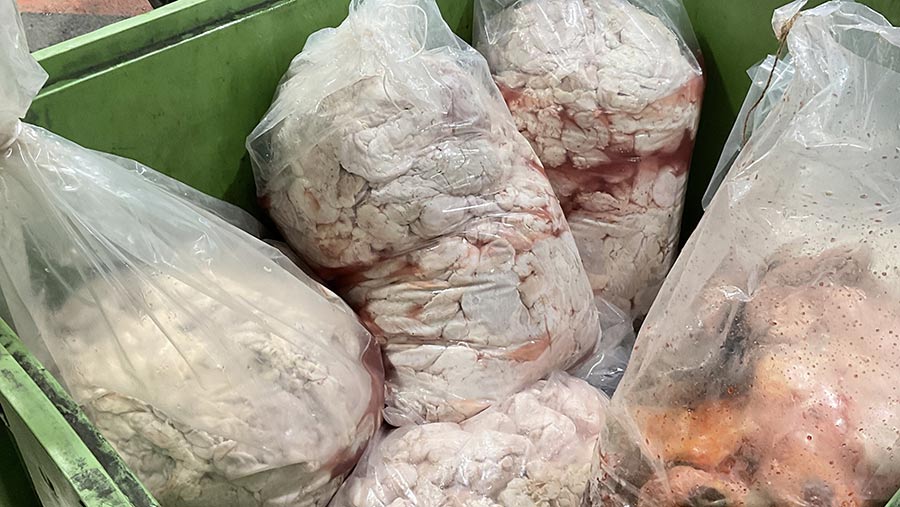Illegal meat seized at Dover in ‘unprecedented volumes’
 © Dover Port Health Authority
© Dover Port Health Authority Vast quantities of illegally imported meat are being seized at Dover port, amid fears this could be just the “tip of the iceberg”.
The revelation comes against the backdrop of repeated delays in introducing official import controls on EU products of animal origin (POAO), with checks at ports not due to start until 30 April 2024.
See also: Illegal meat discovery at Dover highlights Swine fever risk
Beverley Edmondson, port health manager at Dover, told Farmers Weekly’s sister magazine Pig World that, working closely with Border Force, Dover Port Health Authority staff have seized more than 57t of illegal meat since September 2022.
Despite “limited resource”, some 5.5t of illegal meat was seized over the weekend before Christmas.
“Some of this was for personal consumption but, based on its presentation, it was predominantly destined for commercial use, which is extremely alarming,” she said.
“Although this is a significant quantity of illegal POAO, concerningly it is barely the tip of the iceberg.
“We are seeing unprecedented quantities of illegal, non-compliant meat, unparalleled at any other point of entry.”
Packaging
Some of the meat arrives in commercial packaging, but without health marks, while other consignments are labelled to indicate they are from a restricted area affected by African swine fever (ASF).
Discoveries include wheelie bins storing piles of unwrapped and mixed raw and ready-to-eat food, through to bags of pigs’ anuses dripping blood in direct contact with ready-to-eat, partially wrapped food products.
National Pig Association chief executive Lizzie Wilson said the revelations about the volumes of illegal meat being seized at Dover were “deeply worrying”.
“With ASF continuing to spread in Europe, this highlights the very real risk to our national pig herd,” she said.
“We have been calling on government to ensure there are no further delays in introducing Border Target Operating Model and to increase border controls for meat imports to ensure vital work like this can be maintained and stepped up, as is clearly needed.”
A Defra spokesperson said: “Preventing an outbreak of African swine fever is one of our key biosecurity priorities.
“We continue to work closely with Defra-funded Port Health Authority officers to enforce the new import controls which came into force last year to limit possible infected pigmeat being brought into England.”
